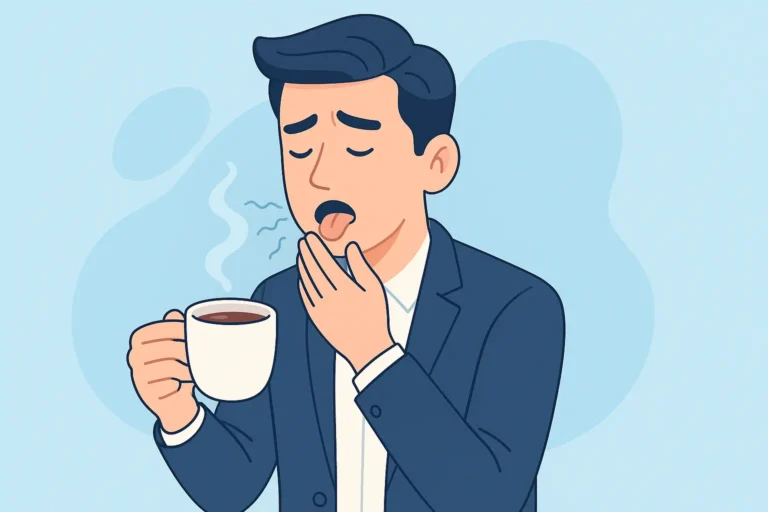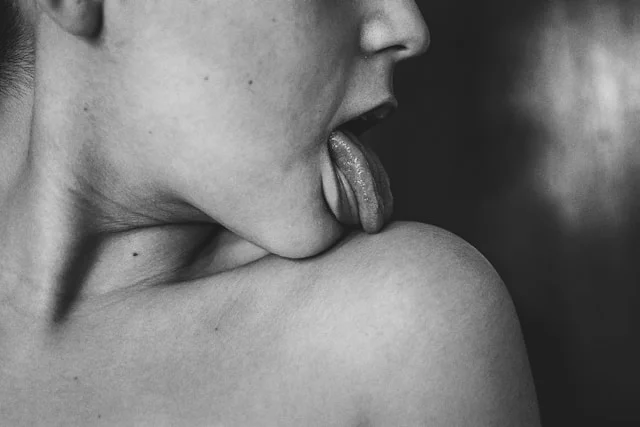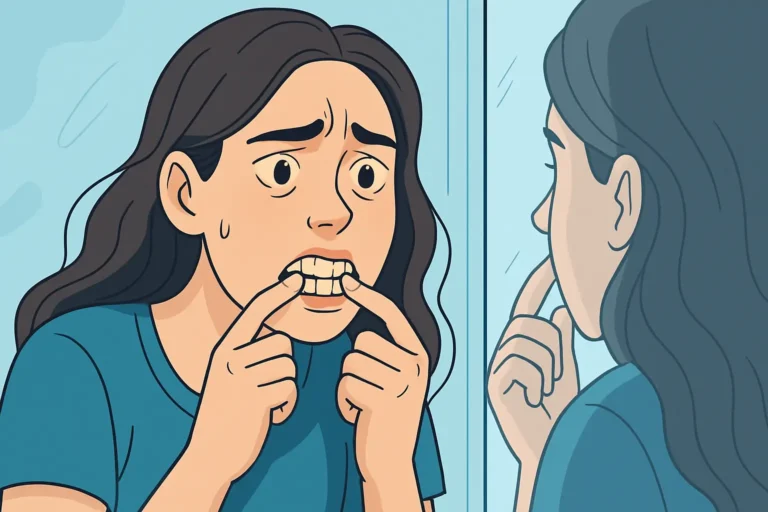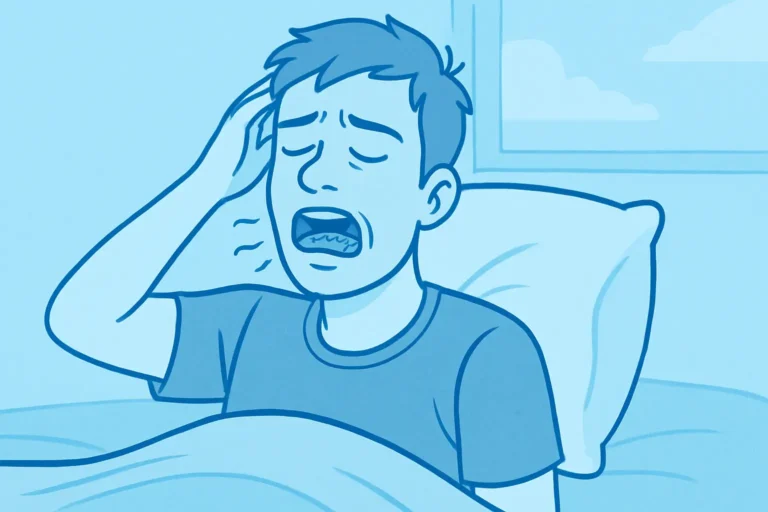Why Does My Mouth Feel Dry But I Have Saliva?
Sometimes you feel like your mouth is dry even though you can clearly feel some saliva there. It can be a strange and uncomfortable feeling. You might keep drinking water, but the dry feeling doesn’t really go away. You might wonder if something serious is going on. Let’s talk about it properly in simple words so you know what’s happening.
If your mouth feels dry but you have saliva, it could be because your saliva is not working properly, or your body is sending wrong signals. It can also be caused by stress, medications, or small health problems.
Now let’s dive into why this happens and what you can do about it.
What is Dry Mouth?
Dry mouth, also called “xerostomia” by doctors, simply means that your mouth does not feel moist enough. But remember, dry mouth is not always about having no saliva. Sometimes, even when saliva is present, your mouth can still feel dry. The quality of saliva matters, not just the amount.
Good saliva is watery and slippery. It coats your mouth, helps you talk, eat, swallow, and keeps your mouth clean. If your saliva is too thick or sticky, it can’t do its job properly. So even if your mouth is full of thick saliva, it can still feel dry.
Why Do I Feel Dry Even When I Have Saliva?
There are a few reasons why this weird thing can happen.
1. Thick or Sticky Saliva
When your saliva is thick, it doesn’t spread easily in your mouth. Thick saliva can feel like it’s stuck in one place. It won’t coat your mouth properly. So even if you have a lot of saliva, your tongue and cheeks might still feel dry.
Common reasons for thick saliva:
- Dehydration (even slight)
- Breathing through the mouth
- Smoking
- Some medications
Here’s a small table to show common causes of thick saliva:
| Cause | How it affects you |
|---|---|
| Dehydration | Less water in saliva, becomes thick |
| Smoking | Dries out mouth tissues |
| Mouth breathing | Evaporates moisture |
| Medications | Changes saliva quality |
2. Nerve Problems
Sometimes, the nerves that tell your brain how your mouth feels might not work properly. Your mouth could be wet, but your brain still thinks it’s dry. This can happen if you have diabetes, a minor nerve injury, or after dental work.
Even anxiety or stress can confuse your body signals. If you’re nervous, your mouth might feel dry even when you are producing normal saliva.
3. Acid Reflux
If you have acid reflux (when stomach acid comes up into your throat), it can irritate your mouth. Acid can dry out the tissues, making your mouth feel dry even if saliva is there. Some people with silent reflux don’t even feel heartburn but still have a dry mouth feeling.
4. Medications
A lot of common medicines mess with your saliva. Some don’t stop saliva completely but change its texture and thickness. This leaves you feeling dry and sticky at the same time.
Some common medicines that can cause this:
- Antidepressants
- Allergy medicines (antihistamines)
- Blood pressure pills
Even over-the-counter cold medicines can do it.
5. Stress and Anxiety
When you are stressed, your body goes into “fight or flight” mode. It slows down saliva production because your body is focused on survival, not digestion. Even if some saliva is still made, it may be thick and not enough to coat your mouth.
Many people don’t realize how much anxiety can mess with saliva. You might feel you are swallowing all the time, but your mouth still feels dry.
How Do I Know If My Saliva is the Problem?
It’s not hard to check a few signs yourself. Here’s what to look for:
- Is your saliva thick like glue?
- Do you feel you are swallowing more often?
- Does your tongue stick to the roof of your mouth?
- Are your lips dry too?
- Does water help for a few seconds but dryness returns quickly?
If you answered yes to a few of these, your saliva may not be doing its job properly.
Common Feelings When You Have Thick Saliva
Many people with this problem describe the feeling like this:
| Feeling | What it means |
|---|---|
| Sticky mouth | Thick saliva stuck in one place |
| Need to sip water often | Saliva not coating mouth properly |
| Rough tongue | Tongue dries out without moisture |
| Dry lips even after licking | Saliva not spreading moisture |
Is This a Serious Problem?
Most of the time, it’s not serious. A lot of people deal with dry mouth feeling once in a while. It can be due to simple things like breathing through your mouth while sleeping, taking a new medicine, or being very nervous.
But if the feeling doesn’t go away for weeks or months, it’s smart to talk to a doctor. Long-term dry mouth can lead to other problems like cavities, bad breath, and trouble chewing food.
Tips to Help Your Mouth Feel Better
You don’t always need heavy treatment. Simple steps can make a big difference.
Drink More Water
Even if you think you’re drinking enough, try sipping small amounts often. Big gulps once or twice a day are not enough.
Chew Sugar-Free Gum
Chewing helps your mouth make more natural saliva. Choose sugar-free gum so you don’t harm your teeth.
Avoid Caffeine and Alcohol
Both of these dry out your mouth. If you drink coffee, follow it with a glass of water.
Use a Humidifier
If your room air is dry, especially during winter, a humidifier can help keep moisture in the air and your mouth.
Breathe Through Your Nose
Mouth breathing dries your mouth quickly. Try to breathe through your nose as much as possible, especially at night.
Watch Your Medicines
If a medicine is causing the dry feeling, talk to your doctor. Sometimes they can adjust the dose or change the drug.
Use Saliva Substitutes
There are mouth sprays and gels that act like saliva. You can find them in most pharmacies. They can give quick relief, especially before sleeping.
When Should You See a Doctor?
You should see a doctor if:
- Your dry feeling lasts more than a few weeks.
- You have trouble eating, swallowing, or talking.
- Your tongue feels cracked or sore.
- You have bad breath that does not go away.
A dentist can also help. Sometimes dry mouth is the first sign of mouth infections or dental problems.
Conclusion
Feeling like your mouth is dry even when you have saliva is a common thing. Most of the time, it’s about the quality of your saliva, not the amount. Thick saliva, stress, medicines, dehydration, and even nerve issues can cause this strange feeling. Simple tips like drinking more water, chewing gum, using a humidifier, and breathing through your nose can help. If it doesn’t get better after a few weeks, it’s smart to check with a doctor or dentist.
Take care of your mouth. It’s a small thing that makes a big difference in how you feel every day.







